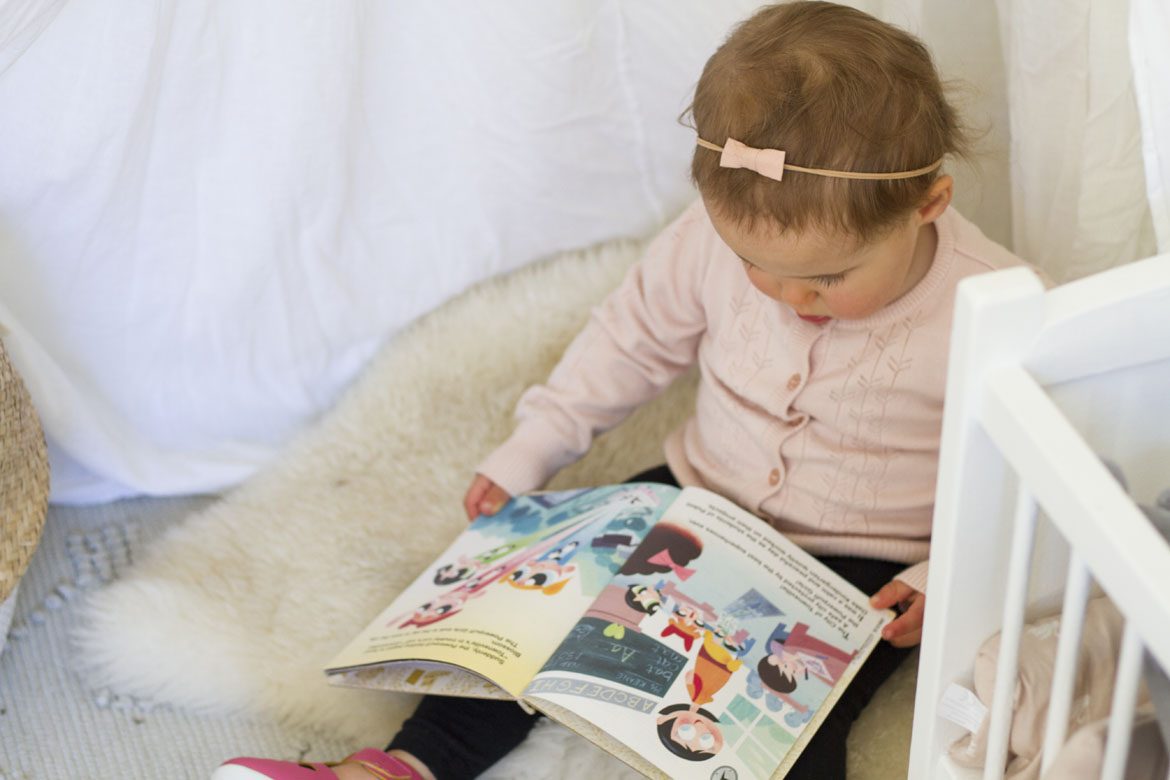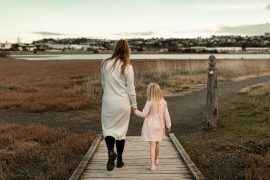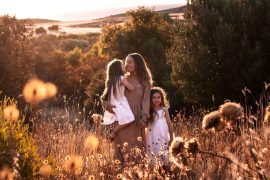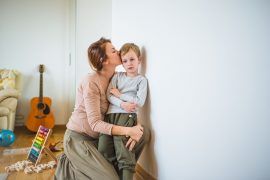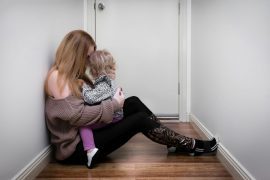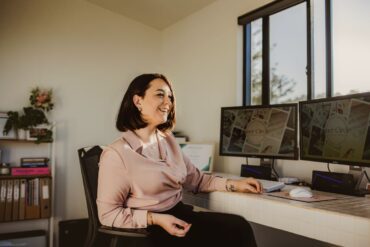By Charlotte Cretney aka Little Hepburn
Last week I had a mini parenting meltdown! It dawned on me for the 100th time in my parenting career, that I really don’t know what I’m doing with this mum gig! My main concern was if I was teaching Audrey enough. I take her to baby activities, read to her, do puzzles, cook and we are always chatting, but I wondered was this enough?
Should I be doing crosswords? Headstands while reciting the alphabet backwards, or enrolling her in Mandarin and yoga at age 2? All jokes aside, I really wanted some good sound advice and after chatting to a few friends who seemed to be in the same boat as me, I decided to reach out to an expert who could give us all some advice and share it with you all! YAY.
The interview below is with the lovely Dr Amy Scott (PHD in Education and Degree in Speech and Language development).
I have learned so much from this interview about Children’s Development, Speech, Milestones, Reading and she also touches on learning difficulties too. I’ve been using some of the reading and communication techniques outlined below with Audrey and her vocabulary has been growing everyday!
Experience and qualifications:
Bachelor of Arts majoring in Psychology, Bachelor of Speech and Language Therapy & PhD in Education.
Your day job:
I have a few!! Senior Research Assistant at the University of Canterbury. The project I am working on is a multi-million dollar research project looking at factors that influence children’s reading success at school entry. Owner of Little Bird Readers – an expertly curated children’s book subscription for 0-5 year-olds. Mama to Ivy – 13 months.
Tell us a little bit about you and your family:
We are a family of 3 plus 1 dog, 1 cat and about 30,000 bees! My husband, Paddy, is a high school teacher and I juggle a few different roles. We are super lucky to be parents to the adorably spunky and hilarious Ivy, our 13 month old. We are a pretty busy family but in our spare time we love to visit the farmer’s market, go for walks, spend time in our garden and with friends and family. We live on a lovely friendly street with awesome neighbours, some of whom are our closest friends, so we tend to spend a lot of time wandering back and forward across the road with our various family members – it’s the best kind of village I could imagine!
How did you get interested in child development?
As a teenager I worked as a nanny and always really enjoyed all the different phases of children’s development. I was especially interested in babies and how their environment seemed to have such a huge impact on their development even from a very young age (this was before I knew that of course environment was important!). I also have an older brother with Down Syndrome and was always exposed to individuals with a range of special needs. These experiences all opened my eyes to the world of helping people be the best versions of themselves, whether it’s reading books with them from the day they are born, or supporting a non-verbal teenager to learn to use their new communication device. I knew I wanted to work in a job where I got to help people every day, and I’m so lucky that this is the life path I have been able to take!
Can you give mum’s some tips on what are good ways to encourage healthy communication development for their children?
From a very young age, the most important thing you can do for their communication development as a parent is talk to your child. Children are amazing little sponges with the most incredible capacity for learning, so the more engagement and interaction they get, the more they will learn.
From birth until around 2 years of age:
The most important thing for a child’s language development is that they hear lots of words – by that I mean they are spoken to very often. In my house, it would look like I am keeping a bit of a running commentary, as I am almost always talking to my daughter and telling her about what I am doing or she is engaged in. This might feel silly, as you chat away about what colour the socks are that you are folding, or how orange and crispy the carrot is that she is eating, but these seemingly simple, everyday activities are the most powerful learning experiences for little ones.
As children age, their capacity for more complex information increases, so we need to keep up this language exposure and provide great models for children who are learning from us. This means using correct grammar and words for things, and resisting the urge to copy their version, even if it is super cute! Children of all ages learn through experience and doing – so play is the best way to provide a great learning environment for your child. Books, the outdoors and imaginative play are just a few great ways for children to learn. As the adult, it’s not your job to dictate, rather just follow their lead and talk about what they are interested in. If your toddler is spending time examining the leaves, you can tell him that they have fallen off the tree because it is winter, and don’t they feel so crispy, and that it is the colour brown. All of a sudden this leaf they picked off the ground has become an impromptu lesson about seasons, texture and colour. Also don’t be afraid to let your child learn and explore by themselves, especially as they get older. Independent play is also really important for learning.
With older children you might like to make time to talk about what they did and saw and heard and smelled and felt when they were doing x activity, after the fact. That way you can still create a really rich language experience for them, but they have ownership of the experience and can guide the conversation towards what interests them.
This might be somewhat controversial but the professional recommendation is to keep kids away from TVs and other screens (e.g apps, YouTube etc) until they are at least 2 years of age. Between 2 and 5 years of age, children are recommended to have no more than 1 hour per day of supervised (that means you watch it with them!), quality screen time. Despite what people think, screens are not supportive of children’s learning at a young age. Children need responsive, engaging communication partners, not talking, moving pictures. Interestingly, there’s a very strong movement in Silicon Valley for children of IT developers to attend screenless schools, as they have begun to recognise how screens can negatively impact children’s language development, capacity for creative thinking and imaginative play, and behaviour.
What are some easy/fun activities you recommend that can be done at home?
I’ve talked a bit about this above – the most simple things can be the most fun and engaging for children.
From a language and reading development perspective, anything you can do to create links between a book and an experience, the more learning that will happen. For example, you might read a book with your baby about penguins who live in Antarctica. Linking activities might include playing with ice cubes and talking about how cold the ice feels and that it would be cold where the penguin from the book lives; singing a song or rhyme about penguins, talking to your baby about penguins (where they live, what they eat, that they have feathers etc) and looking at other pictures of penguins.
With toddlers you might read a book about shapes and then play with some playdoh and make the shapes from the book, naming them and talking about their features (e.g how many sides they have) and what other things are the same shape. When you’re at the playground or even just playing with toys, you can point out the different shapes and relate them back to the book – “this block is a square, it has 4 sides, just like the square in your shape book!”.
Older children will learn through activities, but also conversations and questions about what they are reading. You could talk to your child about what the character might be feeling, what is going to happen next, and what they might do if it was them in the story. All these kinds of questions get your preschooler to think beyond the ‘here and now’ and are extremely important for the kind of language they will need to use and understand when they get to school. Activities that they might enjoy could include doing ‘research’ to find out more about an animal or place they have read about in a book, learning about the author and/or illustrator of the book, reading other books by the same author, acting out the story, or rewriting their own version.
Both toddlers and preschoolers will benefit from talking about letters and their sounds when reading, too. You could start out by talking about words that rhyme (explaining that they sound the same), and then moving on to familiar letters, such as the letter their name starts with/mum/dad/dog etc. Point to the letter on the page, tell them the letter name, the sound it makes, and what starts with that letter. E.g “there’s a d, d-d-d d, dog and Dada start with d!”. While everything I’ve talked about starts with a book, it’s easy to see how the simple act of reading just one story, can become a really rich learning experience for children of all ages. All of the books from Little Bird Readers come with ideas and advice just like this, for how you can use the book to take your child’s learning to the next level.
Can you give a few tips to encourage reading for your babies, toddlers, kids?
Read, lots! Anything and everything. Reading the Weetbix box, the Stop sign, the grocery list, recipe books, the newspaper, children’s book, adult’s books – any kind of reading is important and contributing to their learning! Set a good example and let your child see you reading. Have lots of quality book available at all times. Visit the library!
Fav book for Babies, toddlers, kids?
So hard to choose! I definitely choose books that have great pictures with lots to talk about, for children of all ages. Probably easier for me to say my favourite authors/illustrators: Oliver Jeffers, Donovan Bixley (amazing illustrator of classic songs), Alison Jay (also an illustrator, beautiful wordless books), Andrea Beaty, Chris Haughton, Benji Davies, Lynley Dodd, Margaret Mahy, Enid Blyton, Roald Dahl.
Tips for improving speech with your children and easy first words to work on?
As much as possible let your child see your face when you are speaking to them. Children learn a lot through observation and modeling, so it’s important they are able to see the way you make sounds with your lips and mouth when they are just learning themselves. Try to speak clearly! Mumbling is going to be hard for little ones to understand and not helpful for their own speech development! First words should always be the most practical and functional words, or things that your child is really interested in. Things like mum, dad, milk/bottle, more, finished, up, down. Follow your child’s interests as well – Ivy loves animals so a lot of her words at the moment are animal names and sounds. Baby sign is a fantastic thing to start doing with your baby, even just for a few basic words. It gives them a way of communicating what they are thinking far before they are able to articulate it in words. Children understand about 3 times more than they can say, so gestures such as pointing, and using a medium like sign is going to really help get their message across.
Can you give us some rough guidelines of what ages kids should be hitting milestones with their development?
Developmental milestones can be a help but also a point of stress for many parents. It’s important to have an awareness of your child’s development, but it’s not helpful to compare and worry about what your child is doing compared to others – although now I have my own daughter I know how hard this can be! As a rule of thumb, a 2 year old should be understood about 50% of the time by strangers, a 3 year old 75%-80% of the time, and a 4 year old 100% of the time. This doesn’t mean their speech won’t still have sounds that are wrong, but it does mean that they can get their message across. It’s quite a broad topic to condense developmental milestones down, as there are so many!
From a communication perspective it’s probably easier to talk about red flags, which are things that are worrying and would suggest that some assessment from a professional is a good idea.
By Age Two * Child has no meaningful two-word phrases (without imitating or repeating) by 24 months * Child does not follow simple two step commands such as “Get the ball and put it on the table” * Speech is not at least 50% understandable * Child cannot point to pictures of familiar items in books
When asked By Three Years * Child is not using three and four word sentences * Speech is not at least 75% or more understandable * Child is leaving the beginnings or ends off of most words * Child cannot accurately answer yes/no questions * Child cannot answer simple “wh” questions like “who is that” or “where is the truck” * Does not play with other children.
Overall Warning Signs * ANY loss of speech or babbling or social skills at ANY age * Child never gestures or imitates/copies * Child does not appear to understand speech, or appears to be unable to hear * Children never develops words beyond repeating others over and over.
Do you have any advice for mums who may have children with learning difficulties, or are wondering if their children are behind in their development?
For mums who have a child with special needs or learning difficulties, firstly, I want to send you a huge virtual hug and remind you this is not your fault and you are doing an amazing job! Just recognising and acknowledging your child is having challenges is a huge and difficult step. It’s really helpful to recognise all the wonderful and special things that your child can do, and what they have to offer the world, even when it seems like all the focus is on what they can’t do/where they are falling behind. Seek help from professionals and take in what they say, but also use your instinct and unique knowledge of your child to help guide your decision-making.
Make the most of the professionals available and be an advocate for your child – you know them best! If you are concerned about your child, have them checked out. If your child is under 5, you can refer them yourself for communication or behavioural assessments by calling your local Ministry of Education office, or, your preschool/kindergarten can refer on your behalf. For school-aged children, referrals go through the school, so ask your child’s teacher who the person in charge of special needs is (often called a SENCO – Special Education Needs Coordinator). Expect there to be a waitlist. Refer early as it’s always better to be in the system, even if their needs are not severe enough at the time.

